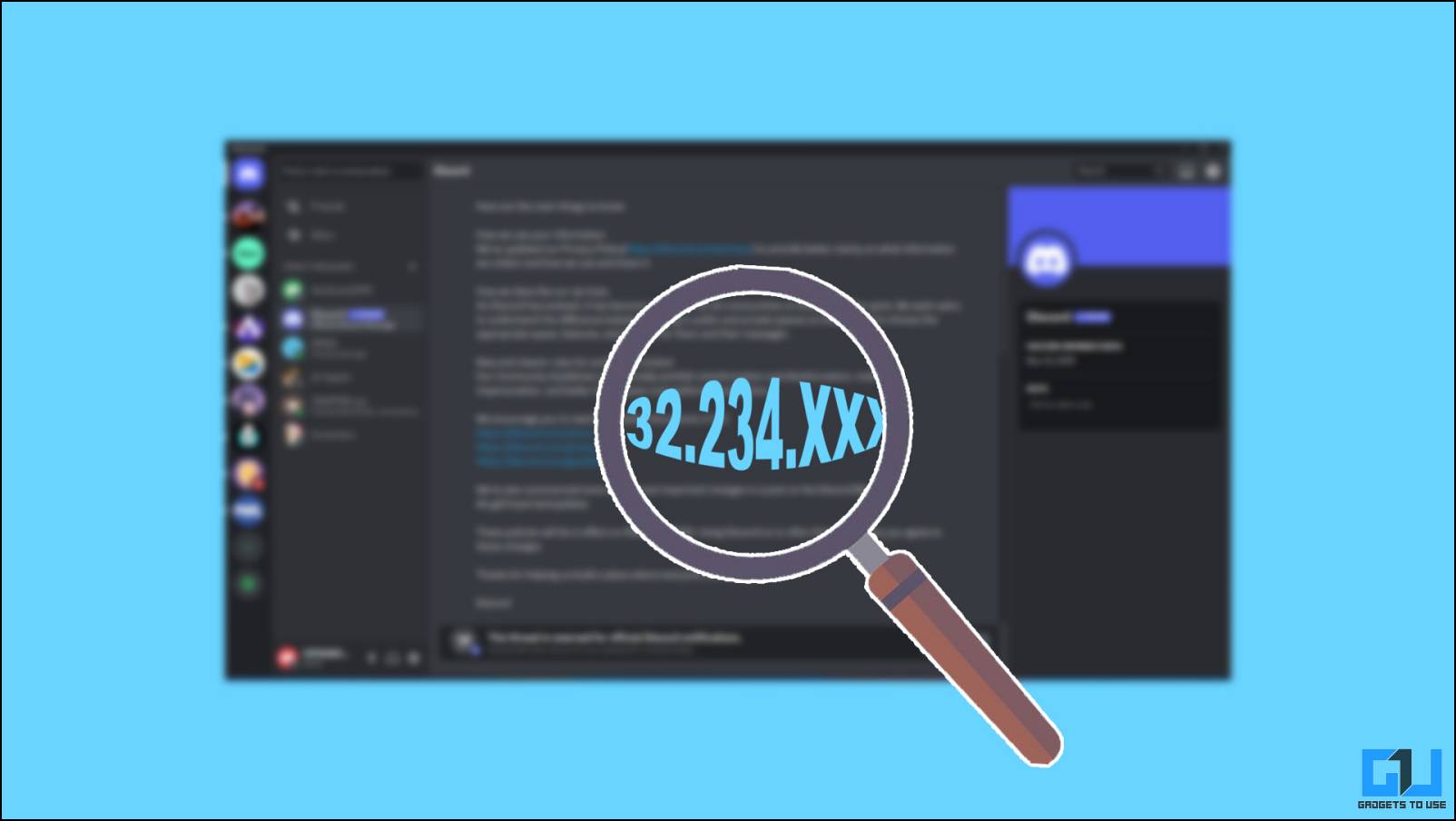Discord IP address grabber techniques represent a significant threat to user privacy and security. This exploration delves into the methods employed by malicious actors to obtain Discord users’ IP addresses, the inherent risks associated with such actions, and the crucial preventative measures individuals and the platform itself can implement. We will examine the technical aspects of these tools, analyze real-world incidents, and discuss the legal and ethical considerations surrounding this issue.
Understanding these complexities is paramount to safeguarding personal information within the Discord environment.
The article will cover various aspects, including Discord’s security measures, common IP grabbing methods (ranging from malware to social engineering), the potential consequences of IP address exposure (like DDoS attacks and identity theft), effective detection and prevention strategies, and a detailed examination of the legal and ethical implications involved. We will also explore real-world case studies to illustrate the practical ramifications of these attacks.
Detection and Prevention Strategies: Discord Ip Address Grabber
Protecting yourself from malicious actors on Discord requires vigilance and proactive security measures. Understanding how IP grabbers operate and implementing preventative strategies is crucial for maintaining your online privacy and security. This guide Artikels key steps to identify and avoid risks, strengthen your account security, and report suspicious activities.
Identifying Suspicious Links and Files
It’s vital to carefully scrutinize any links or files shared on Discord before interacting with them. Suspicious links often contain unusual characters, shortened URLs (using services like bit.ly), or lead to unfamiliar websites. Files with unexpected extensions or those from untrusted sources should also be treated with extreme caution. Hovering your mouse over a link (without clicking) will often reveal the actual URL in a tooltip, allowing you to inspect it before proceeding.
Avoid clicking on links or downloading files from users you don’t know or trust, and always be wary of unsolicited messages containing attachments.
Discord Security Best Practices
Implementing robust security practices minimizes your vulnerability to various threats, including IP address grabbers.
- Enable Two-Factor Authentication (2FA): This adds an extra layer of security, requiring a second verification code (usually from your phone) in addition to your password. This significantly hinders unauthorized access, even if your password is compromised.
- Use a Strong and Unique Password: Choose a complex password that combines uppercase and lowercase letters, numbers, and symbols. Avoid using easily guessable passwords or reusing the same password across multiple accounts.
- Regularly Update Your Software: Keep your operating system, Discord application, and antivirus software up-to-date to patch security vulnerabilities that malicious actors could exploit.
- Be Cautious of Phishing Attempts: Phishing attempts often mimic legitimate Discord messages or websites, attempting to trick you into revealing your login credentials or other sensitive information. Be wary of unsolicited messages requesting personal information or directing you to unfamiliar websites.
- Review Connected Apps and Authorizations: Regularly check the list of applications connected to your Discord account and revoke access to any you no longer use or recognize.
Improving Discord Account Security Settings
Strengthening your Discord account security settings is a proactive approach to minimizing risks.
- Enable Two-Factor Authentication (2FA): Navigate to your Discord User Settings, then “My Account,” and activate 2FA. Choose a method convenient for you, such as an authenticator app or SMS.
- Set a Strong Password: In your Discord User Settings, under “My Account,” change your password to a strong and unique one. Utilize a password manager to help generate and store complex passwords securely.
- Manage Connected Apps: Access “Connected Accounts” in your User Settings to review and revoke access for any applications you no longer trust or use.
- Enable Email Notifications: Configure your email notifications to receive alerts about significant account activity, such as login attempts from unfamiliar locations. This can help detect unauthorized access attempts promptly.
- Review Privacy Settings: Customize your privacy settings to control who can send you direct messages, see your online status, and access your profile information. Adjust these settings to limit interactions with unknown users.
Recognizing and Reporting Suspicious Activity
If you suspect malicious activity, promptly report it to Discord and take appropriate action.Suspicious activity might include unsolicited messages containing suspicious links or attachments, unexpected login attempts from unknown locations, or unusual changes to your account settings. Report such incidents immediately through Discord’s built-in reporting system. Provide as much detail as possible, including screenshots, to assist Discord’s security team in investigating the issue.
Also, change your password immediately and enable 2FA if you haven’t already.
Technical Analysis of IP Address Grabbing Tools

IP address grabbing tools, also known as IP grabbers, are programs designed to extract the IP addresses of users interacting with a specific system or website. Understanding their inner workings is crucial for developing effective countermeasures. This section delves into the technical aspects of these tools, exploring their common components, programming languages, evasion techniques, and a functional breakdown.IP address grabbers typically operate by exploiting vulnerabilities in web applications or network configurations.
They leverage various techniques to obtain user IP addresses, often without the user’s knowledge or consent.
Common Programming Languages
Several programming languages are commonly used to develop IP address grabbers. These languages are chosen for their capabilities in network programming, string manipulation, and data processing. Popular choices include Python, due to its extensive libraries for network operations and ease of use, and JavaScript, which allows for client-side execution within web browsers. Other languages like PHP (often used for server-side scripting) and C++ (for performance-critical applications) may also be employed.
The selection often depends on the target environment and the specific techniques used by the grabber.
Techniques Used to Bypass Security Measures
IP grabbers employ various techniques to circumvent security measures. One common approach involves exploiting vulnerabilities in web servers or applications to gain unauthorized access to user data. Another technique focuses on manipulating HTTP headers or using proxy servers to mask the grabber’s origin and obfuscate its activity. Advanced grabbers might leverage techniques like SQL injection or cross-site scripting (XSS) to extract IP addresses from databases or manipulate user browsers.
Functional Breakdown of an IP Address Grabber
A typical IP address grabber might function in several stages. First, it establishes a connection to the target system or website. This could involve sending HTTP requests to a web server or interacting with a network service. Next, the grabber extracts the IP address from the HTTP request headers or other relevant data streams. The process might involve parsing the raw data, using regular expressions or other string manipulation techniques to isolate the IP address information.
Finally, the grabber stores or transmits the extracted IP addresses. This might involve writing the data to a file, sending it to a remote server, or displaying it within the application itself.
Illustrative Code Snippets, Discord ip address grabber
The following code snippets illustrate simplified aspects of an IP address grabber’s functionality. These examples are for illustrative purposes only and should not be used for malicious activities.
Example 1: Extracting IP from HTTP Headers (Conceptual Python)
# This is a simplified representation and does not contain functional code.
# ... (Code to establish a network connection and retrieve HTTP headers) ...
ip_address = extract_ip_from_headers(headers) # Hypothetical function
# ... (Code to process and store the ip_address) ...
Example 2: Obtaining Client IP (Conceptual JavaScript)
// This is a simplified representation and does not contain functional code.
// ... (Code to access client IP, possibly through a server-side proxy) ...
var clientIP = getClientIP(); // Hypothetical function
// ... (Code to process and potentially transmit clientIP) ...
These snippets highlight the core steps involved in obtaining and handling IP addresses. Actual implementations would be far more complex and might include error handling, security checks (though these would be absent in a malicious grabber), and various obfuscation techniques.
Ultimately, the threat of Discord IP address grabbers underscores the critical need for heightened awareness and proactive security measures. By understanding the techniques used, the associated risks, and the preventative strategies available, both Discord users and the platform itself can work collaboratively to mitigate this persistent threat to online privacy and security. Staying informed, practicing safe online habits, and reporting suspicious activity are crucial steps in maintaining a secure digital environment.
Further details about frigidaire ac remove front paneldoublelist tampa florida is accessible to provide you additional insights.


